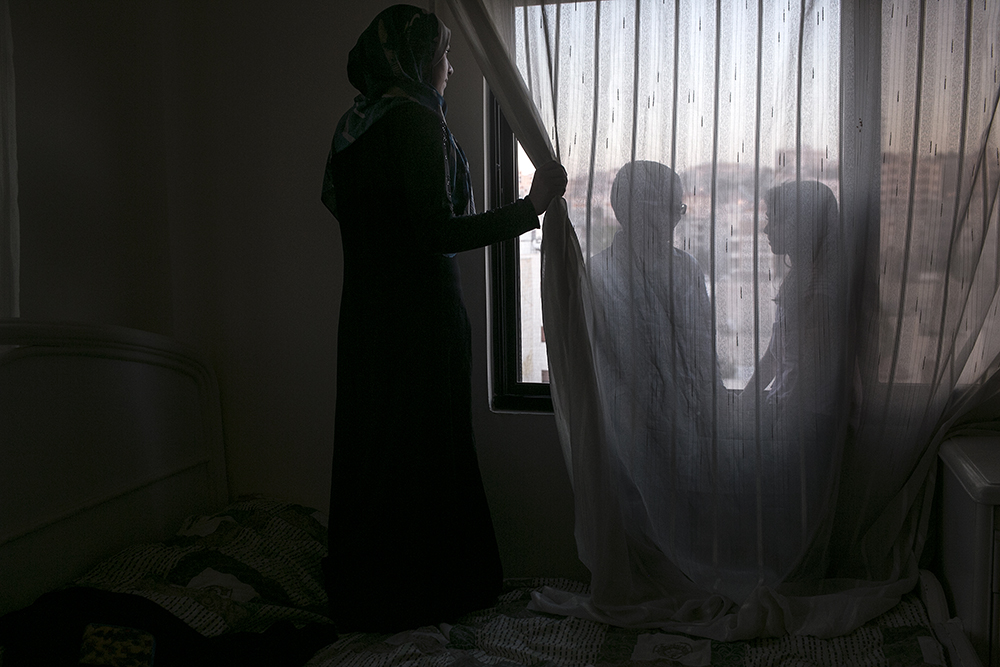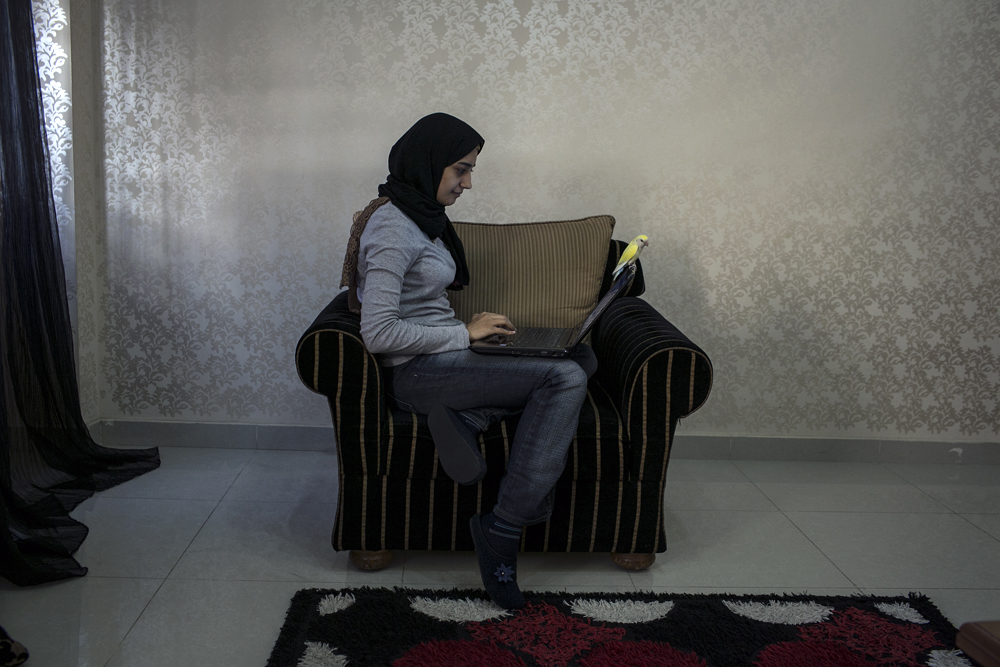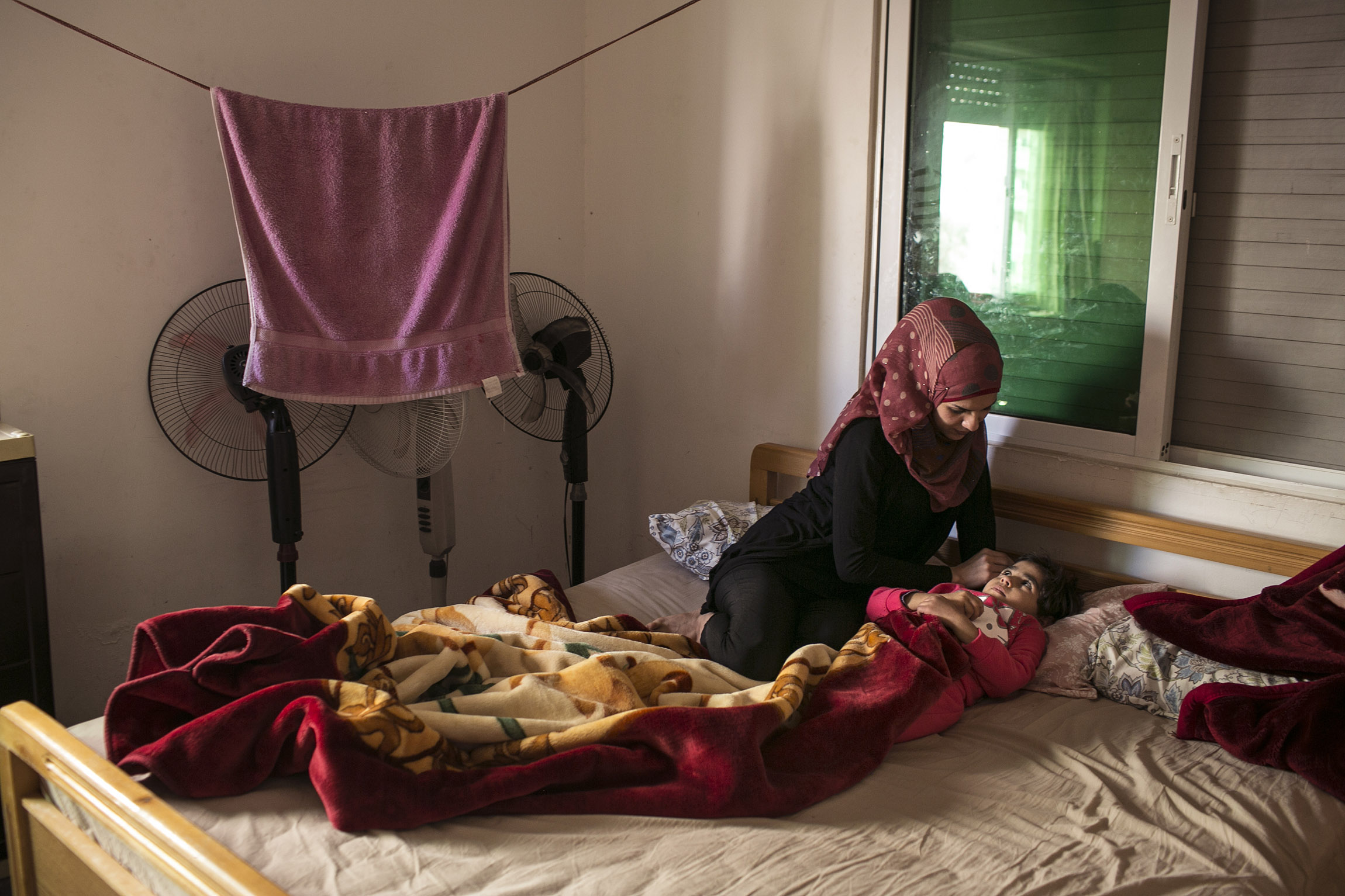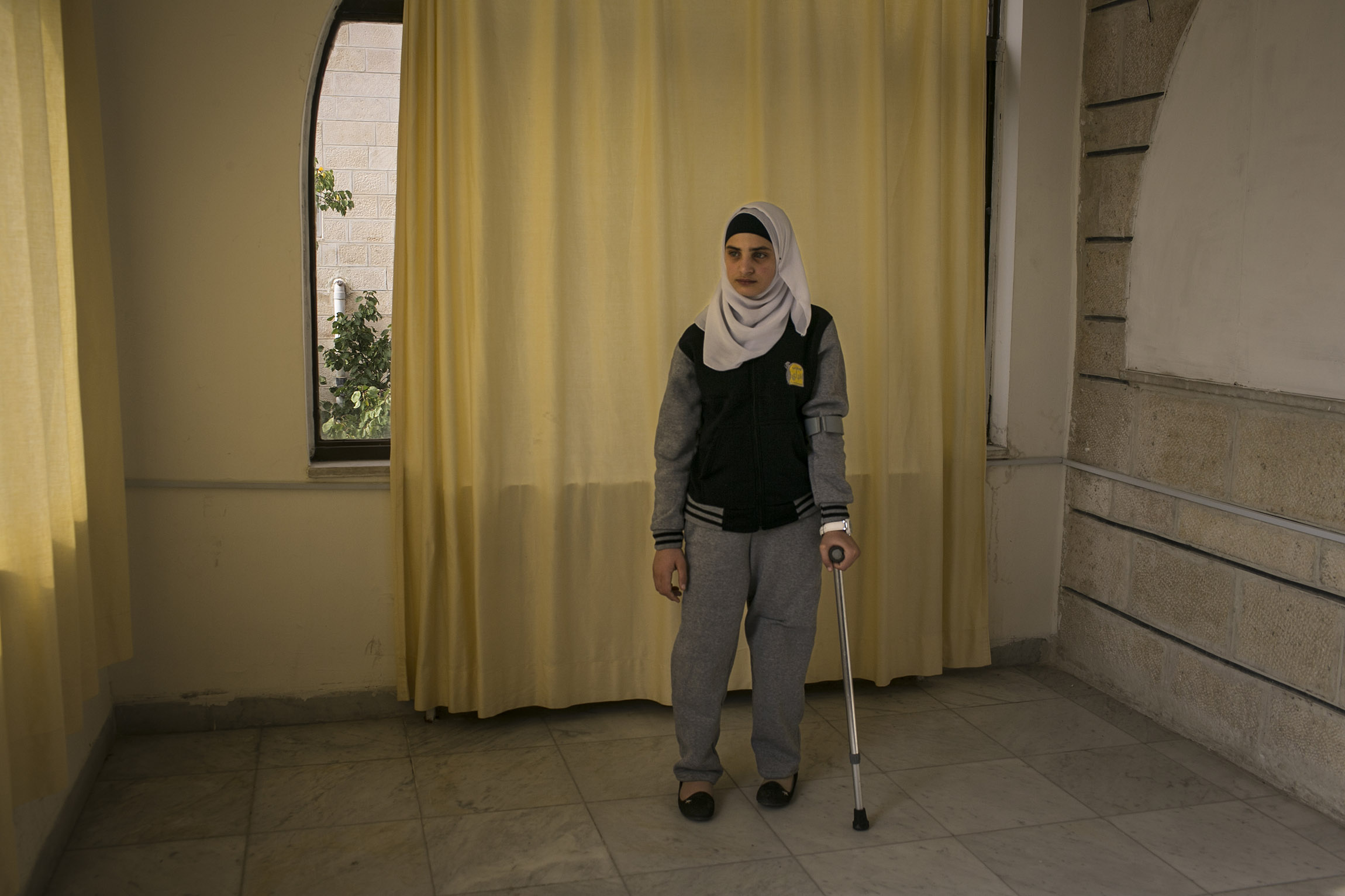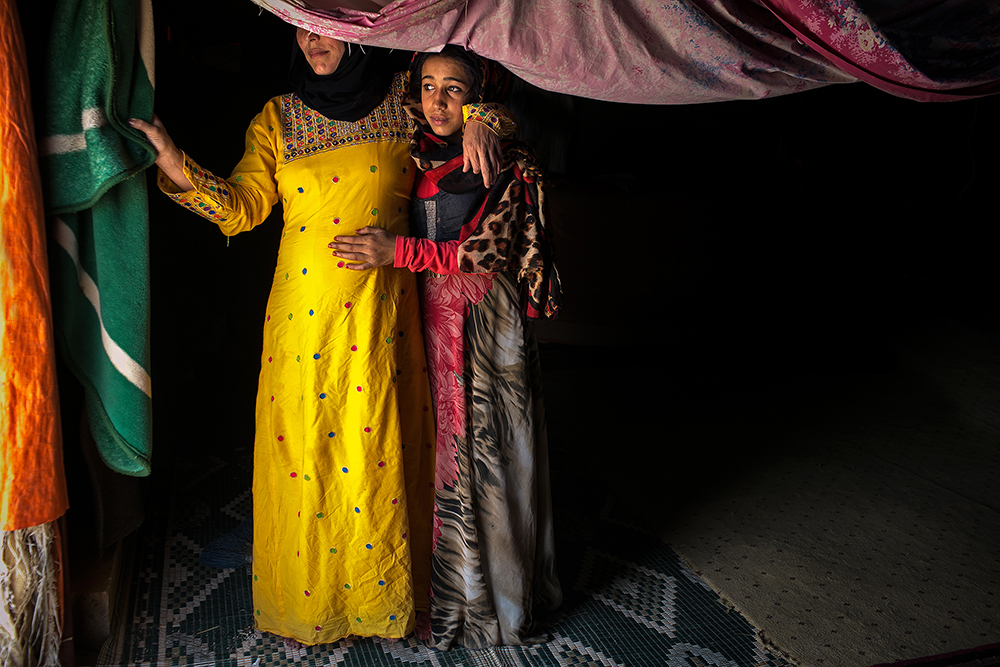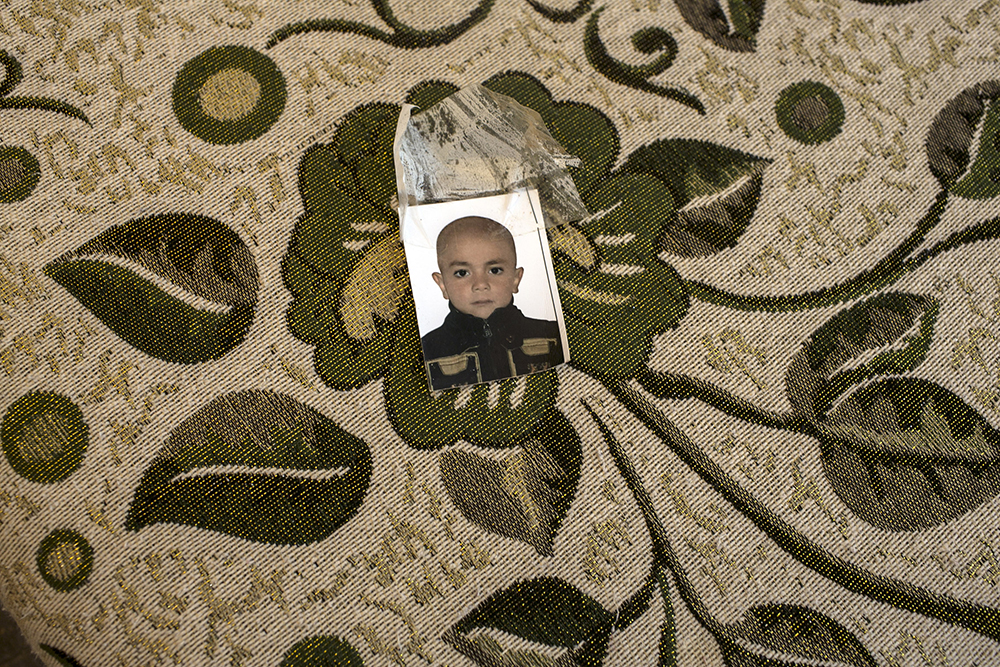Chapter Two
SYRIA VIA WHATSAPP
(2014-2016)
The draw to Europe seduces entire families, but most often, because of the high risk and financial cost, it is the adult men who first make the journey.
But those they leave behind – often just miles from the Syrian border – must wait for the call to join, without any guarantees they will ever be able to reunite with their men. Whether in refugee camps or in squalid rented apartments in the cities, these women and children are trapped in an acute cycle of poverty, isolation, and anxiety as they wait for the promises of the men of new lives in Europe to come true. In the meantime, many mothers watch their underage sons toil for scraps to help the family survive.
The guilt of those who make it to Europe is present on their stricken faces in the photos the men send back to their families. Their haunted eyes and sheepish smiles stare out from smartphone screens – their hunched shoulders framed by the green of Swedish forests or the red brick of quaint German towns. In the messages they record and transmit over WhatsApp, they speak words of encouragement and promises of a better future. They sing lullabies for their wives to play to their children as they sleep.
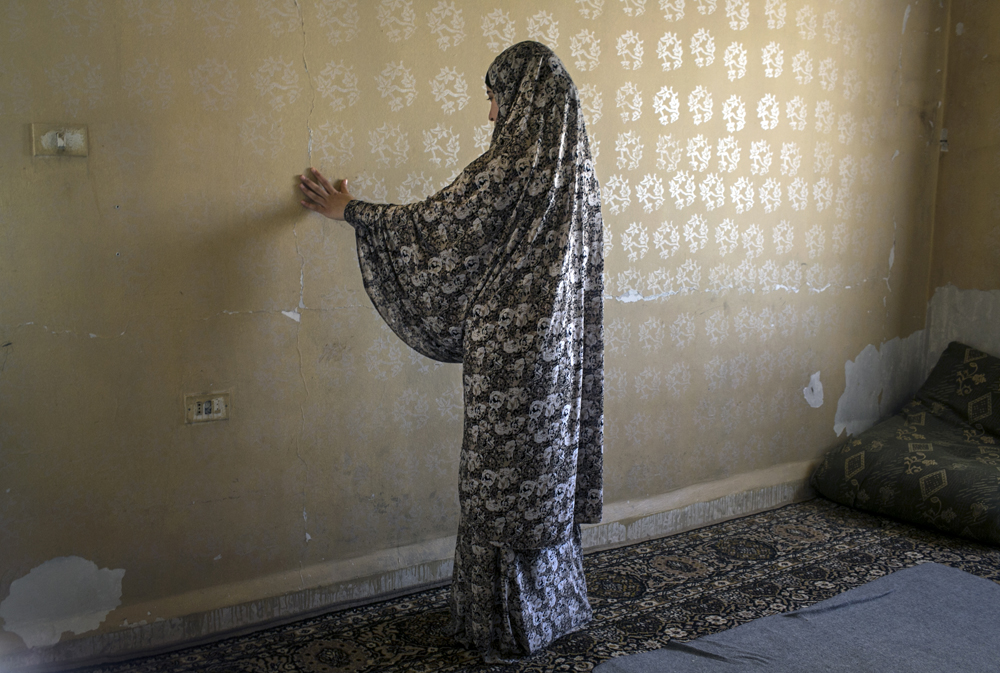
Kill Me Instead!
Fadia, 19, traces cracks in the walls of her rented apartment as she describes the death of her father. After returning home from his job as a construction laborer, shortly before the dawn prayer, he collapsed right away onto his bed, dusting the sheets with the debris that fell from his work clothes. Not long after, the shabiha (pro-regime militia) burst into their home and shot him, execution style, in the head. He had barely woken up. When Fadia’s little brother wailed in fear, the guns were turned on him. Fadia screamed, “Kill me instead!” Both were spared. She now lives with her aunt on the outskirts of Amman in a crowded one-bedroom apartment with fifteen extended family members. They survive by digging through trash containers and finding remnants of bread to dry and sell to herders. This earns them a couple of dollars a day.
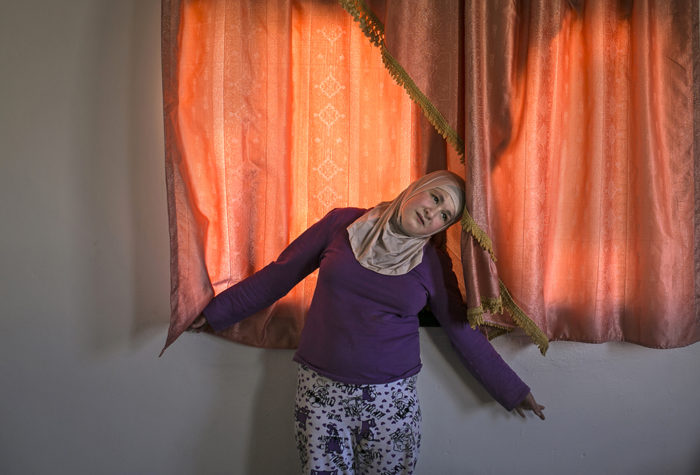
Danya, 12, a Syrian refugee with a mental disability, playfully pretends to fly before suddenly beginning to whimper. She cries because she cannot go to school, as her parents cannot afford the private one that can attend to her special needs. Unable to find legal employment, her father Muhammed, 49, spends most days begging in the streets with Danya and her twin brother, Muhammed, also mentally disabled. The family has been approved by UNHCR for monthly cash assistance totaling 120 JOD, which, funding levels permitting, they hope to begin receiving soon. While this will enable the twins and their father to stop begging each day, Haifa (her mother) says the children will still not be able to go to school. “There’s a special center for disabled children in Madaba, but even if there were places available, we couldn’t afford to send them.”
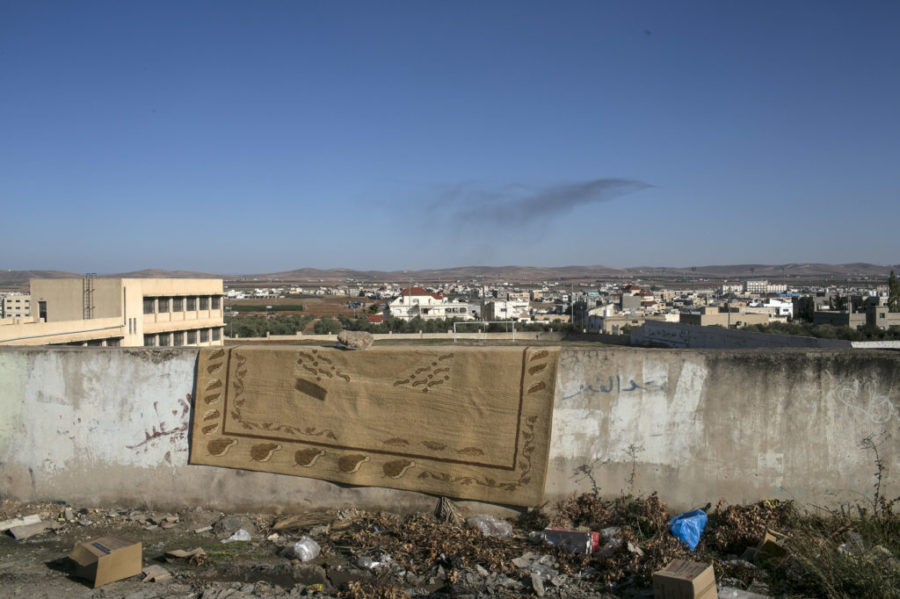
Smoke from what appeared to be an explosion over Daraa.
